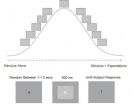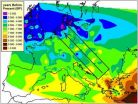(Press-News.org) Australian scientists have successfully cleared a HIV-like infection from mice by boosting the function of cells vital to the immune response.
A team led by Dr Marc Pellegrini from the Walter and Eliza Hall Institute showed that a cell signaling hormone called interleukin-7 (IL-7) reinvigorates the immune response to chronic viral infection, allowing the host to completely clear virus. Their findings were released in today's edition of the journal Cell.
Dr Pellegrini, from the institute's Infection and Immunity division, said the finding could lead to a cure for chronic viral infections such as HIV, hepatitis B and C, and bacterial infections such as tuberculosis, which are significant economic and global health burdens.
Current approaches to curing chronic infections tend to focus on generating a long-lived immune response to a specific disease. Dr Pellegrini, working with colleagues Mr Simon Preston and Mr Jesse Toe, and collaborators Professors Pamela Ohashi and Tak Mak from the Ontario Cancer Institute, argues that long-lived immune responses to chronic diseases are not always effective, and has instead concentrated on how the immune response can be manipulated to better fight infection.
"Viruses such as HIV and hepatitis B and C overwhelm the immune system, leading to establishment of chronic infections that are lifelong and incurable," Dr Pellegrini said. "Despite tremendous efforts, long-lived immune responses for some of these viruses are ineffective, because the body is so overrun by virus that the immune system, in particular T cells, just give up trying to battle the infection. Some people have coined the phrase 'immune exhaustion' to explain the phenomenon. Our approach is to discover some of the mechanisms that cause this immune exhaustion, and manipulate host genes to see if we can boost the natural immune response in order to beat infection."
The team investigated the role of IL-7, a naturally-occurring immune hormone, in a mouse model of HIV infection. IL-7 is a cytokine (cell signalling hormone) that plays a critical role in immune system development and maintenance.
"We found that IL-7 boosted the immune response in a pretty profound fashion, such that animals were able to gradually clear the virus without too much collateral tissue damage," Dr Pellegrini said.
Further investigations revealed that, at the molecular level, IL-7 switched off a gene called SOCS-3.
"In an overwhelming infection, SOCS-3 becomes highly activated and suppresses the immune response, probably as a natural precaution to prevent 'out-of-control' responses that cause collateral damage to body tissue," Dr Pellegrini said. "In the case of these overwhelming infections, the immune system effectively slams on the brakes too early, and the infection persists."
Mr Preston, who worked on the SOCS-3 studies, said that switching off the SOCS-3 gene boosted the immune system and helped the animals to completely eliminate the infection.
"The key for us was figuring out that turning off SOCS-3 only really worked when it was within T cells," Mr Preston said. "It allowed the immune response to boost the number of virus-specific T cells and have an immune response good enough to eliminate the virus without initiating an immune response that was too large and would make the animal sick."
Dr Pellegrini said the research had provided excellent ideas for new therapies that could target and boost host immune cells to fight disease, rather than targeting the disease itself.
"The findings could help to develop drugs that target some of these host molecules, such as SOCS-3, and turn them off for very short, defined periods of time to reinvigorate the T cells, allowing them to regroup to fight infection," he said.
INFORMATION:
This research was supported by the Australian National Health and Medical Research Council, the Canadian Institute for Health and the Cancer Research Institute.
Boosting body's immune response may hold key to HIV cure
2011-02-04
ELSE PRESS RELEASES FROM THIS DATE:
Expectations speed up conscious perception
2011-02-04
The human brain works incredibly fast. However, visual impressions are so complex that their processing takes several hundred milliseconds before they enter our consciousness. Scientists at the Max Planck Institute for Brain Research in Frankfurt am Main have now shown that this delay may vary in length. When the brain possesses some prior information − that is, when it already knows what it is about to see − conscious recognition occurs faster. Until now, neuroscientists assumed that the processes leading up to conscious perception were rather rigid and that ...
Northern hunters slowed down advance of Neolithic farmers
2011-02-04
One of the most significant socioeconomic changes in the history of humanity took place around 10,000 years ago, when the Near East went from an economy based on hunting and gathering (Mesolithic) to another kind on agriculture (Neolithic). Farmers rapidly entered the Balkan Peninsula and then advanced gradually throughout the rest of Europe.
Various theories have been proposed over recent years to explain this process, and now physicists from the University of Girona (UdG) have for the first time presented a new model to explain how the Neolithic front slowed down as ...
Adapting technology to elderly people
2011-02-04
Massive Art Multimedia in Austria and CoSi Elektronik in Germany have a history of collaboration on successful technical projects. A brainstorming session between their developers produced the idea of bringing together many aspects of the modern computing world and applying them specifically to the one group in society that is least likely to already feel those benefits - senior citizens. As with so many projects of this nature, the funding for development was out of reach of two SMEs. By facilitating the funding process EUREKA permitted the development of the project now ...
Death in the bat caves: Disease wiping out hibernating bats
2011-02-04
Conservationists across the United States are racing to discover a solution to White-Nose Syndrome, a disease that is threatening to wipe out bat species across North America. A review published in Conservation Biology reveals that although WNS has already killed one million bats, there are critical knowledge gaps preventing researchers from combating the disease.
WNS is a fatal disease that targets hibernating bats and is believed to be caused by a newly discovered cold-adapted fungus, Geomyces destructans, which infects and invades the living skin of hibernating bats. ...
Using a generic blood pressure and heart drug could save the UK $324 million in 2011
2011-02-04
Using a generic drug to treat hypertension and heart failure, instead of branded medicines from the same class, could save the UK National Health Service (NHS) at least £200 million in 2011 without any real reduction in clinical benefits.
That is the key finding of a systematic review, statistical meta-analysis and cost-effectiveness analysis just published online by IJCP, the International Journal of Clinical Practice.
Researchers from University College London Hospitals NHS Foundation Trust looked at 14 hypertension and heart studies published between 1998 and 2009 ...
Lund adopts chromosome 19
2011-02-04
The genes that make up the human genome were mapped by HUGO, the Human Genome Organisation, and published in 2001. Now the project is expanding into the HUPO, the Human Proteome Organisation. Within the framework of this organisation, many hundreds of researchers around the world will work together to identify the proteins that the different genes give rise to in the human body.
"The 'proteome', the set of all human proteins, is significantly more complicated than the genome. There are over 20 000 proteins coded by the genome in the human body and each protein can have ...
Current use of biodiesel no more harmful than regular diesel
2011-02-04
Up to seven per cent biodiesel blended in regular diesel will presumably not cause greater health risks for the population than the use of pure fossil diesel. This is the main conclusion in a memorandum from the Norwegian Institute of Public Health and the Climate and Pollution Control Agency (formerly SFT) to the Ministry of Health and Care Services and the Ministry of the Environment in Norway.
"A higher content of biodiesel (up to 20 per cent) requires more research to assess health effects. This must include different types of biofuels and blending ratios, as well ...
Blood-clotting agent can diagnose fatal genetic diseases, finds study
2011-02-04
University of Manchester scientists have shown that a protein involved in blood clotting can be used to diagnose and subsequently monitor the treatment of a group of childhood genetic diseases.
In the study, published in the Journal of Inherited Metabolic Disease, the researchers were able to show that the clotting agent, heparan cofactor II/Thrombin (HCII/T) complex, could be used as a 'biomarker', or biological tell, in individuals with mucopolysaccharide (MPS) diseases.
MPS diseases are severe metabolic conditions caused by a genetic defect that affects the body's ...
Drug-abusers have difficulty to recognize negative emotions as wrath, fear and sadness
2011-02-04
University of Granada scientists have been the first to analyze the relation between drug abuse and recognition of basic emotions (happiness, surprise, wrath, fear, sadness and disgust) by drug-abusers. Thus, the study revealed that drug-abusers have difficulty to identify negative emotions by their facial expression: wrath, disgust, fear and sadness.
Further, regular abuse of alcohol, cannabis and cocaine usually affects abusers' fluency and decision-making. Consuming cannabis and cocaine negatively affects work memory and reasoning. Similarly, cocaine abuse is associated ...
Advancing biocrop alternatives in the Pacific Northwest
2011-02-04
Pacific Northwest farmers could someday be filling up their machinery's tanks with fuels produced from their own fields, according to ongoing research by U.S. Department of Agriculture (USDA) scientists.
Since 2003, Agricultural Research Service (ARS) microbiologist Hal Collins and agronomist Rick Boydston have been studying safflower, camelina, soybeans, mustard, canola, wheat, corn and switchgrass to assess their potential for bioenergy production. ARS is USDA's chief intramural scientific research agency, and this research supports the USDA priority of developing ...


